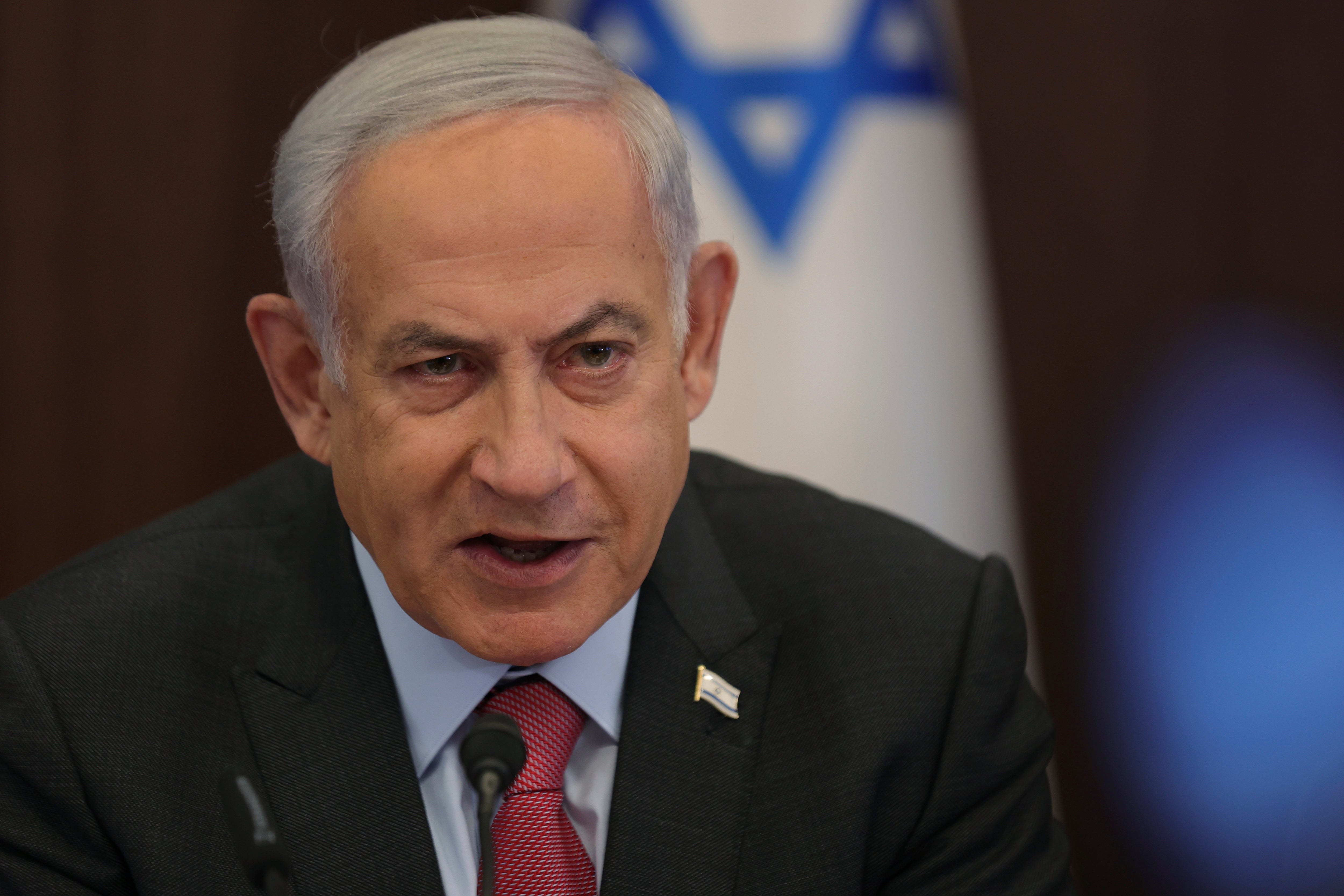Netanyahu urges military chief to contain reservist protest
Israeli Prime Minister Benjamin Netanyahu has urged the military’s chief of staff to contain a wave of protest from within the ranks over a contentious government plan to overhaul the judiciary

Your support helps us to tell the story
From reproductive rights to climate change to Big Tech, The Independent is on the ground when the story is developing. Whether it's investigating the financials of Elon Musk's pro-Trump PAC or producing our latest documentary, 'The A Word', which shines a light on the American women fighting for reproductive rights, we know how important it is to parse out the facts from the messaging.
At such a critical moment in US history, we need reporters on the ground. Your donation allows us to keep sending journalists to speak to both sides of the story.
The Independent is trusted by Americans across the entire political spectrum. And unlike many other quality news outlets, we choose not to lock Americans out of our reporting and analysis with paywalls. We believe quality journalism should be available to everyone, paid for by those who can afford it.
Your support makes all the difference.Israeli Prime Minister Benjamin Netanyahu urged the military's chief of staff on Sunday to contain a wave of protest from within the ranks over a contentious government plan to overhaul the judiciary.
Netanyahu's remarks come as Israel is embroiled in a major crisis that has sent tens of thousands of people into the streets protesting every week for the last two months. The divide over Netanyahu's plans to change the legal system has not spared the country's military, its most trusted institution, where many reservists have pledged not to show up for duty under what they see as impending regime change.
Starting Sunday, more than 700 elite officers from the Air Force, special forces, and Mossad said they would stop volunteering for duty. The typically taboo talk of refusal to serve in a military that is compulsory for most Jews and is highly respected by the Jewish majority underlines how deeply the overhaul plan has divided Israel.
Netanyahu has rejected a compromise plan proposed by the country's ceremonial president meant to defuse the crisis. He made no mention of reaching an agreement with opponents during the remarks to his Cabinet, instead saying he would not accept “anarchy,” listing off demands that his security chiefs rein in road blockages by protesters, incitement against him and his ministers and the refusal to serve by a growing number of reservists.
“I expect from the military chief of staff and the heads of the branches of the security services to aggressively combat the refusal to serve. There’s no place for refusal to serve in the public discourse,” he said. “A state that wishes to exist can’t tolerate such phenomena and we will not tolerate it as well.”
The protest from within the military comes as Israel is mired in a year-long round of fighting with the Palestinians, and as Israel's archenemy Iran races ahead with its nuclear program. Israel says Iran is developing a nuclear bomb — a charge that Tehran denies.
Netanyahu said Sunday the legal changes would be carried out responsibly while protecting the basic rights of all Israelis. His government — the country's most right-wing ever — says the overhaul is meant to correct an imbalance that has given the courts too much power and prevented lawmakers from carrying out the voting public's will.
Critics say it will upend Israel's delicate system of checks and balances and slide the country toward authoritarianism. They also say it could give Netanyahu a chance to evade conviction in his corruption trial.
The military had no immediate comment about Netanyahu's remarks. The military’s chief of staff, Lt. Gen. Herzl Halevi, has reportedly warned Netanyahu that the reservists’ protest risks harming the military’s capabilities. He has pledged to make sure it doesn't and keep the military outside of the public debate on the overhaul.